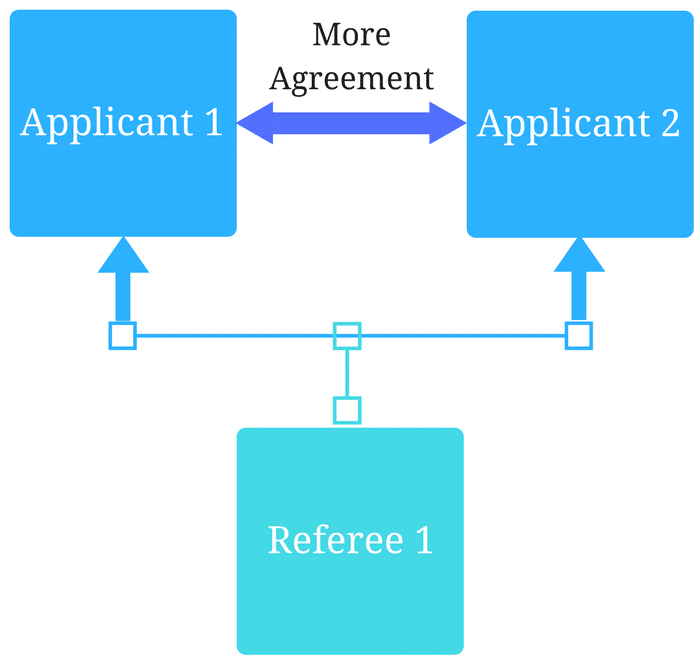Automating the MSPE for Better Outcomes

November 14, 2025
A Strategic Imperative for Medical Schools
Each year, as residency season approaches, one process consistently stretches medical schools to their limits: the creation of Medical Student Performance Evaluation (MSPE) letters. What should be a straightforward reflection of each learner’s progress too often becomes an administrative bottleneck involving scattered data, version control issues, and hundreds of hours of manual effort.
For Deans and student affairs leaders, the stakes are high. MSPE letters shape how residency programs view graduates and reflect the quality of a school’s academic operations. Errors, delays, or inconsistent formats can affect both institutional reputation and learner outcomes.
The good news is that this is one of the easiest areas to modernize. By automating the MSPE process with MSPE Builder within the One45 suite by Acuity Insights, schools can save time, reduce errors, and enhance the experience for learners and staff alike.
Why Automating the MSPE Matters
1. Reduce administrative burden and risk
Traditional MSPE workflows rely on piecing together data from exams, grades, narrative comments and matriculation data stored in multiple systems or spreadsheets. That patchwork approach makes errors inevitable and can delay submissions to ERAS.
MSPE Builder centralizes the institution-approved data needed for MSPEs, automatically populates your approved template as new and updated information becomes available. The result is a faster, more accurate process that dramatically reduces the need for manual copy-and-paste assembly.
2. Enhance the learner experience
When staff spend less time chasing data, they have more time to focus on what truly matters: shaping each student’s narrative and ensuring their accomplishments are highlighted. MSPE Builder also enables secure learner review directly within the system, improving transparency and trust while giving students a chance to confirm accuracy.
For student affairs teams, this means fewer email threads, better communication, and a smoother experience for both learners and reviewers.
3. Maintain compliance and consistency
AAMC requirements for the MSPE evolve, and keeping up manually can lead to inconsistencies across letters or cohorts. MSPE Builder supports alignment with the latest AAMC MSPE guidance via configurable, institution-approved templates.
How MSPE Builder Works
1. Centralized setup and data integration
Your team starts with a standardized, school-approved template. The system pulls institution-approved data from your systems of record into our data warehouse.
2. Dynamic letter generation
Once data is collected, MSPE Builder automatically populates the relevant data points of each student’s letter. The template and workflow accommodate atypical tracks (e.g., off-cycle, dual-degree) so each letter remains accurate and complete.
MSPE Builder also auto-generates clinical performance graphs. Traditionally, this step requires waiting for final grades, recalculating graphs for each clerkship and off-cycle learner, and then inserting every graph, in sequence, into every MSPE. Automating it eliminates one of the most repetitive, error-prone tasks for student affairs teams and ensures consistent presentation across the entire class.
3. Learner and reviewer workflows
Letters move through a clear workflow: initial drafts, student review, revisions, and final approval. The system supports a structured student-review step, giving administrators visibility into which learners have reviewed and acknowledged their draft.
4. Finalization and submission
Completed letters are reviewed, signed, and exported in PDF format. Schools can monitor progress in real time and quickly identify any letters that require attention before submission deadlines.
5. Program-level visibility
A built-in dashboard shows for authorized users where learners are in the process: who has viewed their letter, and who has signed off with or without feedback. This gives Deans and administrators a clear view of institutional readiness for the ERAS deadline.
Questions for Deans to Ask When Evaluating Their MSPE Process
1. How many data sources feed into our MSPE letters, and how reliable are they?
If your team is still manually copying and pasting information from multiple systems into Word docs, automation can dramatically improve data integrity and reduce rework.
2. How transparent is our review process for learners and faculty?
A consistent, auditable workflow not only ensures fairness but also builds confidence among learners and reviewers.
3. Do we have the visibility we need at a program level?
Indicators of learner review status and the ability for staff to lock letters when they’re finalized helps staff coordinate the process without relying on spreadsheets or email chains.
Implementation Insights
Even with automation, success depends on thoughtful process design. Here are a few proven steps that help schools adopt MSPE Builder effectively:
- Start with collaboration. Engage your registrar, student affairs, curriculum, and IT teams early to align data sources and approval workflows.
- Define ownership. Identify who is responsible for data accuracy and letter review at each stage.
- Pilot before scaling. Begin with a subset of students to refine your workflow before expanding.
- Train and communicate. Ensure all stakeholders, especially faculty, understand the new process and what’s expected of them.
The Strategic Value of Modernizing the MSPE
MSPE creation has traditionally been one of the most time-consuming administrative tasks in undergraduate medical education. Automating it through our MSPE Builder transforms a high-stress, high-risk process into a predictable, transparent, and data-driven workflow.
- For learners, it ensures accuracy and fairness.
- For staff, it saves time and reduces errors.
- For leadership, it strengthens the school’s reputation for operational excellence.
Automation is no longer just about efficiency. It’s about aligning every part of the medical education lifecycle, from admissions to graduation, with the same standard of data quality and learner support.
With MSPE Builder, medical schools can focus on what matters most: preparing their graduates for success in residency and beyond.
Related Articles

How interviews could be misleading your admissions...
Most schools consider the interview an important portion of their admissions process, hence a considerable…
Reference letters in academic admissions: useful o...
Because of the lack of innovation, there are often few opportunities to examine current legacy…
